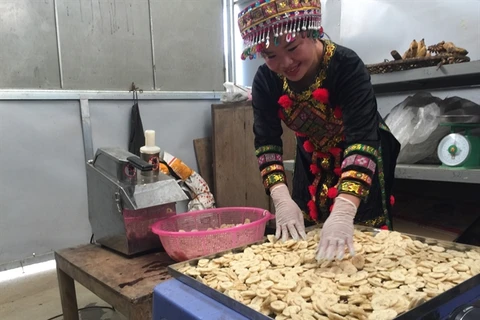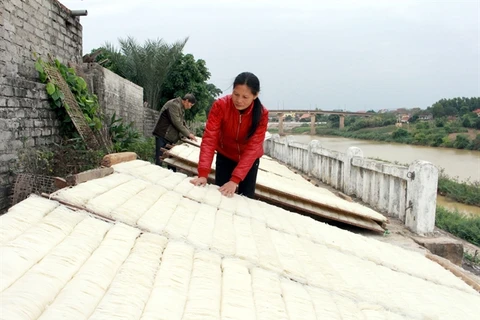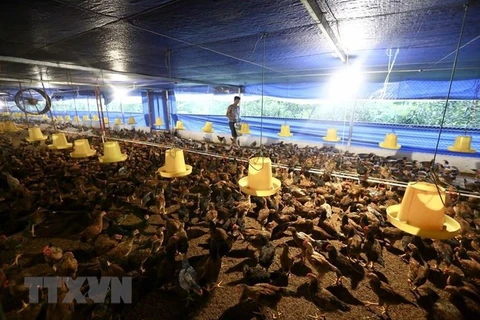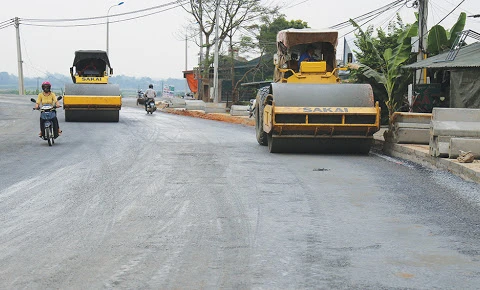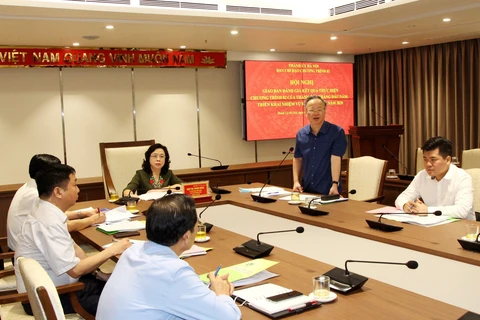Hanoi (VNA) – Hanoi recently announced 275 products meeting standards of the “One Commune – One Product” (OCOP) programme at the municipal level in 2019, raising the total number of such products here to 301.
According to the local coordinating office for new-style countryside building, Hanoi classified 301 products last year, including six rated five stars, 207 others four stars, and 88 three stars. The city also stepped up promoting OCOP products, thus helping to improve consumers’ recognition of and trust in local goods.
During the first half of 2020, it has continued to enhance communication about the OCOP programme and issued temporary guidance on the management and use of OCOP marks and star ratings on labels and packages of products with at least three stars in the programme.
Meanwhile, local districts and towns have also selected products for classification at the district level.
Hanoi aims to rate about 800 – 1,000 OCOP products by the end of this year.
Addressing a recent show of local OCOP products, Director of the municipal Department of Agriculture and Rural Development Chu Phu My said the OCOP programme has created a fair platform for healthy competition among producers and for craft villages to bring into play their potential values.
It has also created stable jobs and helped raise labourers’ income, thus practically contributing to the implementation of the national target programme for new-style rural area building. OCOP producers have also gained chances to improve their knowledge of business laws and have open dialogue with partners and State agencies, he noted.
Last year, Hanoi announced it would spend 265 billion VND (11.4 million USD) on implementing the local OCOP programme for the 2019 – 2020 period.
According to the plan, 100 percent of OCOP programme managers at commune-, district, and municipal level public agencies as well as at organizations, businesses and cooperatives registering for the programme will have to undergo training to improve their building capacity.
The capital city has set a goal of developing at least two eco-craft village models. It will look to improve the local origin tracing system for agro-forestry-fishery goods (https://hn.check.net.vn) and website serving State management and demand-supply connectivity related to Hanoi’s OCOP products (http://nongthonmoihanoi.gov.vn/).
Initially, Hanoi’s OCOP programme will focus on a number of goods groups, including food, beverage, herbs, fabrics and apparel, souvenir – home decoration, and agricultural tourism.
Participating organisations will receive support to invest in machines and equipment for production; design and register their brand; obtain capital; hire experts, and distribute goods.
The OCOP was initiated by the Ministry of Agriculture and Rural Development in 2008, following the model of Japan’s “One Village, One Product” and Thailand’s “One Town, One Product”. It is an economic development programme for rural areas focusing on increasing internal power and values, which is also meant to help with the national target programme on new-style rural area building.
The classifications of goods and services defined in the programme include food (fresh and processed farm produce); beverages (alcoholic and non-alcoholic drinking); medicinal herbs (products made from herbal plants); fabric and textiles (products made from cotton and yarn); souvenirs, furniture, and decorations (products made from wood, fibres, rattan, metal, and ceramics); and rural tourism services and sales (services for sightseeing, tourism, study, and research).
The overall objective of the programme is to develop stable and sustainable forms of production for organisations and businesses (with priority given to developing cooperatives and small- and medium-sized enterprises), towards producing traditional products and improving services with high competitiveness on the domestic and international markets, thus promoting rural economy and national agriculture industrialisation and modernisation.
In 2013, Quang Ninh was the first province in Vietnam to pilot the programme./.
VNA

